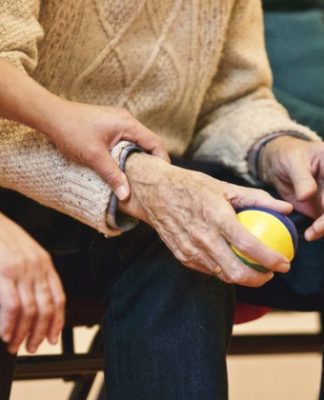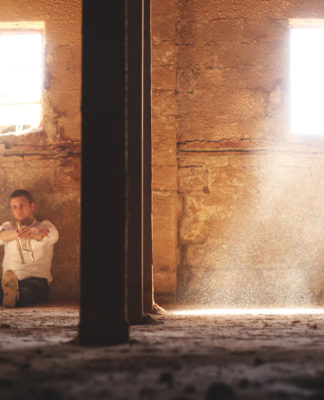Are you Missing the Signs of Toddler Anxiety?
Toddlers have it made. With hours to play and no responsibilities – what could possibly cause a toddler to be anxious, right?
Wrong. Just like adults, toddlers don’t need a reason to be anxious.
Anxiety has a strong genetic component. So the same way your child can have your mother’s height or your Aunt Martha’s nose – they can have their anxiety as well.
Common anxiety symptoms don’t usually show up until a child is school aged, but why wait? There are early warning signs that might indicate your child has an anxious temperament. These are more subtle signs that are often not anxiety related at all.
Unfortunately these early warning signs can resemble and even overlap with other issues including Autism Spectrum Disorder(ASD) and Sensory Processing Disorder (SPD). These early precursors to anxiety usually include behavioral and sensory processing issues. Children who have sensory processing issues as toddlers, will often have issues with anxiety as they get older.
Early intervention is key for all of these issues – therefore it is important to get an evaluation from a mental health professional who specializes in toddler mental health along with a pediatric occupational therapist if you have any concerns.
Below are 10 possible signs of an anxious toddler (please note – most toddlers have some of these signs. It is the level of intensity and how it affects their daily functioning that make it significant. Also, these signs can overlap with other diagnoses as well – therefore a full assessment is advised).
1) Fears and Phobias
Typical toddlers can exhibit fears, but it is the level of fear that differentiates the anxious toddler from the non-anxious toddler. The most common toddler fears are centered on a few basic themes:
Bugs, birds and animals
Shadows and the dark
Monsters, creatures and dinosaurs
Bathroom fears (Fear of getting flushed down the toilet, of bugs or of the flush)
Bathtub fears (Fear of getting swallowed by the drain, bugs in bath or of water)
This is not an exhaustive list, but highlights the most common toddler fears you might encounter with your little one.
2) Rigidity in Routine
All toddlers love routine and structure, but anxious toddlers cannot survive without it! Anxious toddlers need to have their day planned out in a very predictable fashion.
If plans suddenly change, these children become completely unglued. Anxious children cannot handle change or transitions and they will often become unraveled when simple changes are made to their daily routine.
3) Sensitivity to Noises
Anxious toddlers are more likely to have heightened sensitivities. They are often more startled by noises in their environment. They might be afraid of loud sounds such as the vacuum, garbage disposal, garbage truck, automatic toilet flushers and loud music.
4) Sensitivity to Clothes
Besides noises, anxious children might start to have issues with their clothes. Often anxious toddlers have trouble with seams on their socks and tags on their clothes. Some children prefer to wear crocs or flip flops. Some anxious toddlers refuse to wear jeans or clothes that feel restricting on their body.
5) Doesn’t like to get Hands Dirty
Some anxious toddlers are very concerned with getting dirty – especially their hands. Anxious toddlers often avoid messy play and they may have a mini-meltdown if their hands get overly dirty. They will often insist on washing their hands when their hands have anything on them.
6) Has Many Rituals
Anxious toddlers have many routines, that border on ritualistic behavior. They may only want to use certain dishes or they may insist that you serve food to them in a certain way (cut it in triangles).
They might have bedtime routines that require you to line up their stuffed animals in a certain way or require you to say good night to them in a certain way. They might have you re-do things because it wasn’t done in the correct order or in the correct way.
7) Picky Eater
Most toddlers are picky eaters. Food is a common toddler battle. The anxious toddler takes picky eating to another level!
Anxious children are less likely to try any new foods at all. They may not want their food touching on their plate. Some anxious toddlers gag when their food has textures they are not expecting. Anxious toddlers might have less than a handful of foods that they will eat.
8) Toddler Follows you From Room to Room
The anxious toddler is a parent’s shadow. Many toddlers will follow their parent around the house, but the anxious toddler will have a complete meltdown if they cannot see their parent. These children are right under their parent’s feet and cry and hover around the door when their parent’s in the bathroom. Any type of separation is a cause for panic for the anxious toddler.
9) Slow to Warm
Anxious toddlers are less likely to be friendly to strangers. They are more likely to be leg huggers and may take some time to warm up to new people in their life. Some anxious toddlers might be overwhelmed in crowds or at busy birthday parties where there are many children around.
10) Sleep Issues
Anxious toddlers almost always have sleep issues. They have a hard time sleeping on their own and want their parent to lie down with them or sleep with them at night. They might get up several times a night because they are scared or had a bad dream.
Some anxious toddlers might have all ten of these qualities and others might only have a few. Every child is unique and anxiety can manifest in different ways for different children.
The good news is the earlier you detect anxiety in your child, the quicker you can learn approaches to help build their level of resiliency and teach them coping mechanisms to overcome these challenges.
If you are concerned about your toddler’s behavior, consult a child therapist who specializes in infant and toddler mental health along with a pediatric occupational therapist for an evaluation.
Anxious children often tend to be some of the most kind-hearted children I have ever met! Having a sensitive temperament brings many great strengths. It is important to arm our young children with tools to overcome their anxiety, so their full potential can achieved.

















